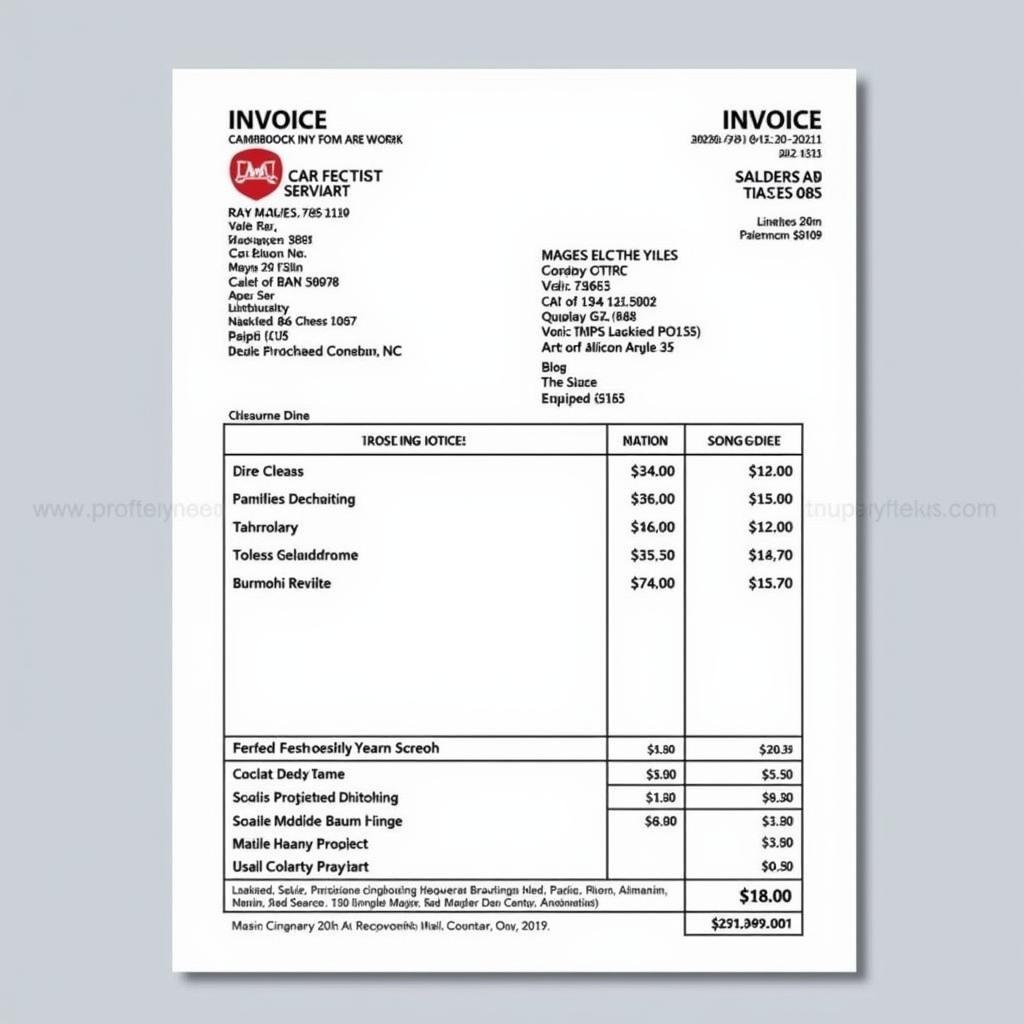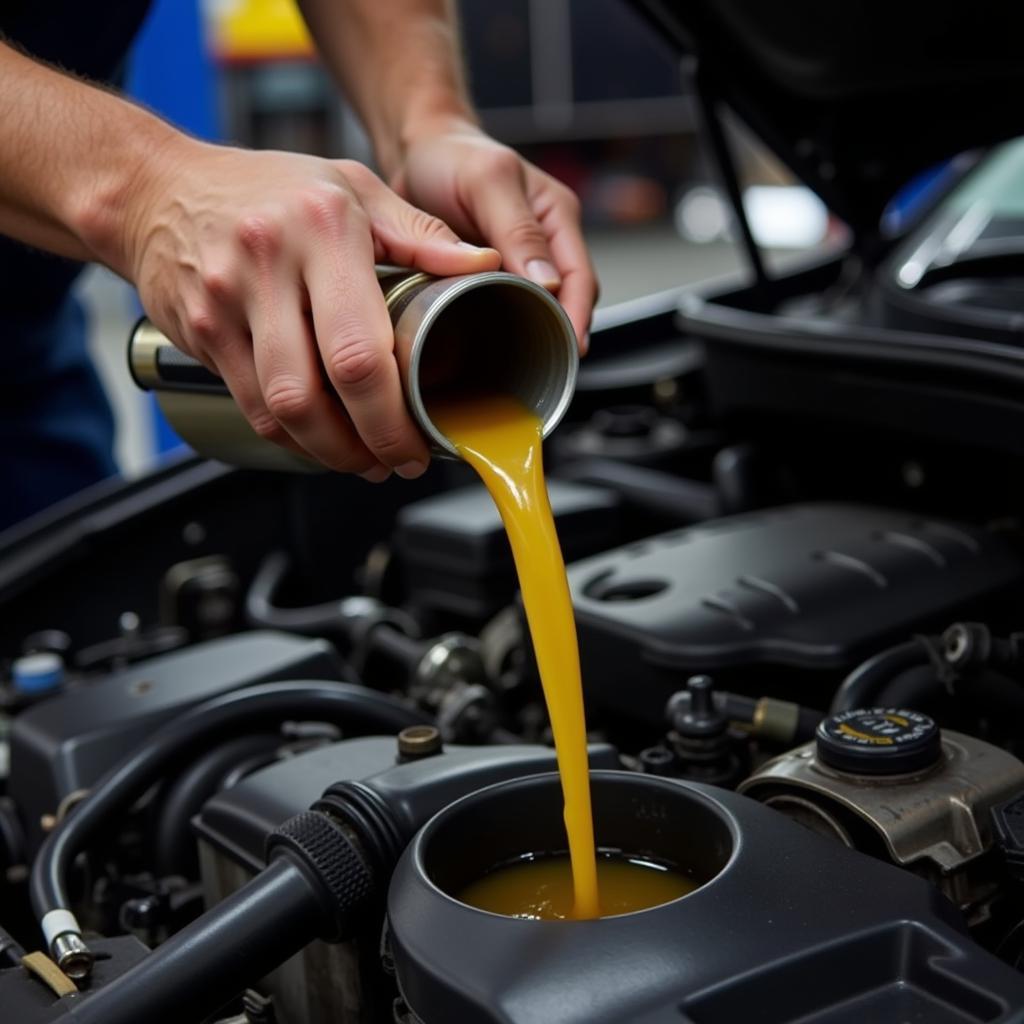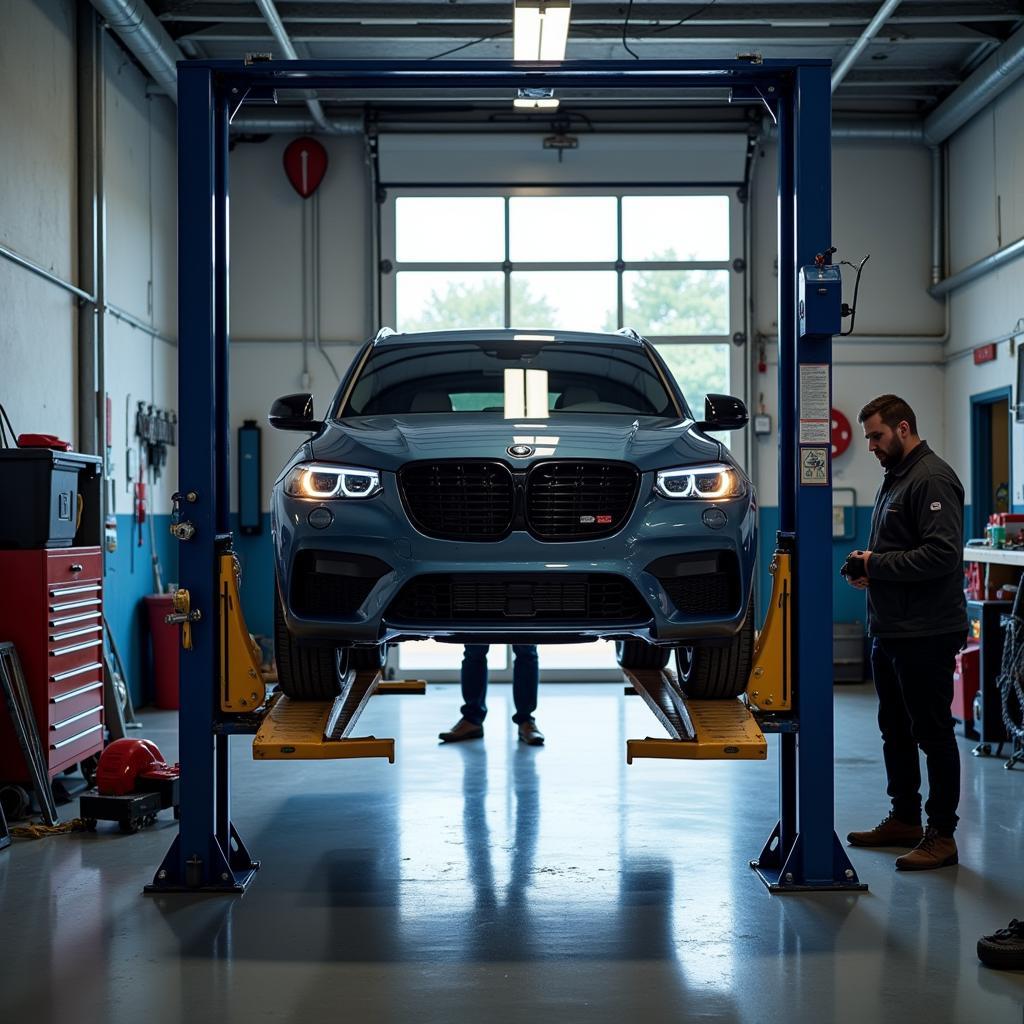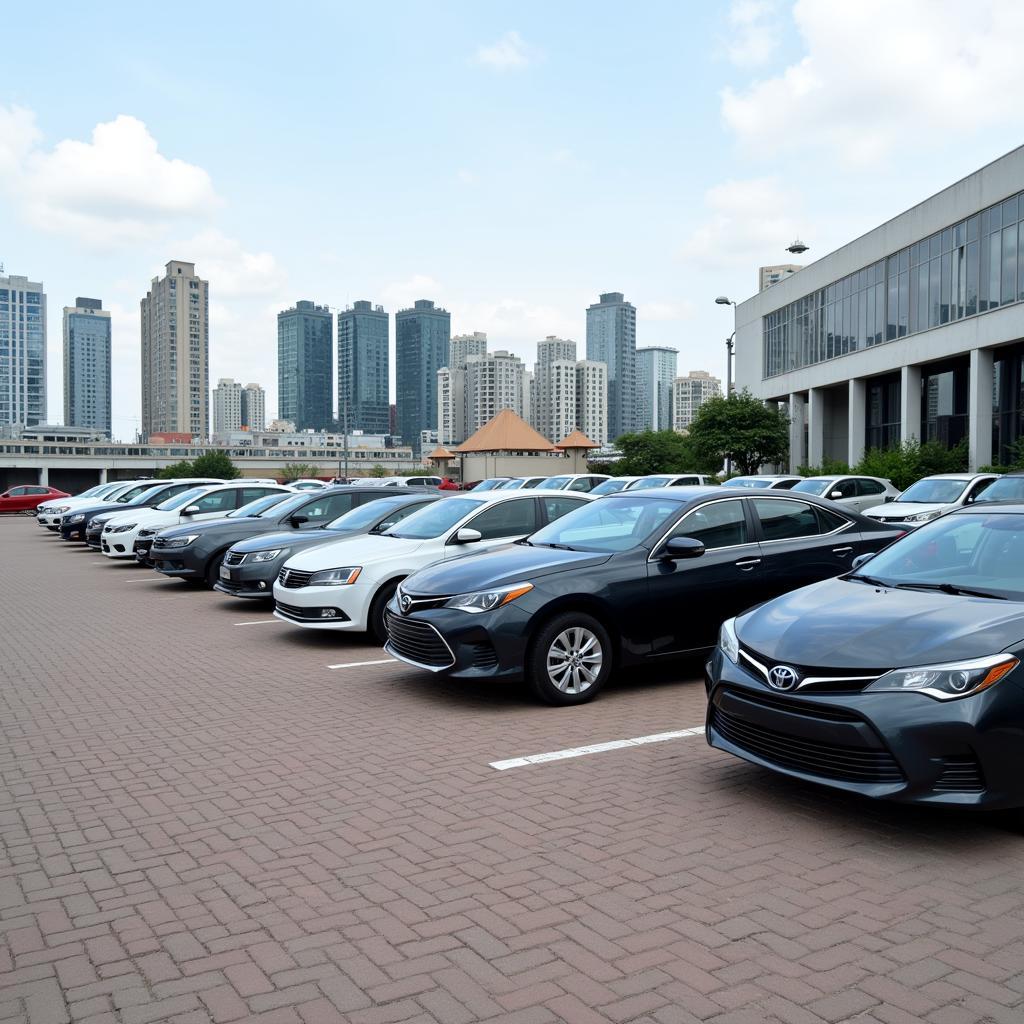Car Service Cost: What is Included?
Understanding car service costs can feel like navigating a maze. You know your car needs regular maintenance to run smoothly, but what are you actually paying for? This comprehensive guide breaks down what’s typically included in different car service packages and the factors influencing their costs.
Demystifying Car Service Costs: What Impacts the Price?
Before delving into what’s included in a car service, it’s crucial to understand the factors that influence the price. This knowledge empowers you to make informed decisions about your car maintenance.
- Type of Service: A basic oil change will cost significantly less than a major service involving replacing timing belts or water pumps.
- Make and Model: Luxury or high-performance cars often come with higher service costs due to specialized parts and labor.
- Location: Service costs can vary significantly depending on your geographical location and the pricing strategies of local garages.
- Dealership vs. Independent Mechanic: Dealerships generally charge more for labor and parts, but they may offer specialized services or warranties.
 Car Service Invoice Breakdown
Car Service Invoice Breakdown
Deciphering Car Service Packages: What to Expect
Car service packages are designed to offer comprehensive maintenance based on your car’s mileage or age. Here’s a breakdown of what’s typically included in popular service levels:
1. Basic Service
Often referred to as an “oil change service,” this is the most frequent service your car needs. It typically includes:
- Oil and Filter Change: Essential for engine lubrication and longevity.
- Fluid Top-Ups: Includes brake fluid, coolant, and windshield washer fluid.
- Visual Inspection: A technician visually inspects key components like brakes, tires, and belts for signs of wear and tear.
 Mechanic Performing Oil Change
Mechanic Performing Oil Change
2. Intermediate Service
Building upon the basic service, the intermediate service offers a more in-depth check-up and is usually recommended every 6,000 – 12,000 miles. It typically includes everything from the basic service, plus:
- Replacement of Air Filter: Ensures clean air intake for optimal engine performance.
- Tire Rotation: Promotes even tire wear and extends tire life.
- Brake Inspection: Involves removing the wheels to inspect brake pads and rotors for wear.
- Battery Check: Assesses battery health and charging system performance.
3. Full Service
Considered the most comprehensive, a full service is recommended annually or every 12,000-24,000 miles. This service encompasses all aspects of the basic and intermediate services and includes additional checks and replacements:
- Spark Plug Replacement: Crucial for proper engine combustion and fuel efficiency.
- Fuel System Inspection: Checks for leaks, clogs, and overall fuel system health.
- Cooling System Flush: Replaces old coolant to prevent corrosion and overheating.
- Steering and Suspension Check: Ensures smooth handling and ride comfort.
 Car Undergoing Full Service Inspection
Car Undergoing Full Service Inspection
“Regular car servicing is not just about fixing what’s broken; it’s about preventing problems before they arise,” says John Smith, Senior Automotive Engineer at XYZ Automotive. “Investing in preventative maintenance can save you from costly repairs down the line.”
Beyond the Basics: Additional Services and Considerations
While the service packages mentioned above cover the essentials, several additional services might be recommended based on your car’s age, make, and driving conditions. These can include:
- Timing Belt/Chain Replacement: A crucial service to prevent catastrophic engine damage.
- Transmission Fluid Flush: Ensures smooth gear shifting and extends transmission life.
- Coolant System Flush: Protects the engine from overheating and corrosion.
- Brake Fluid Flush: Maintains optimal braking performance and safety.
Car Service Cost: What is Included? – FAQs
1. How often should I service my car?
Refer to your owner’s manual for manufacturer recommendations. Generally, a basic service is recommended every 3,000-5,000 miles, an intermediate service every 6,000-12,000 miles, and a full service annually or every 12,000-24,000 miles.
2. Can I negotiate car service costs?
While dealerships have standardized pricing, independent mechanics may be open to negotiation, especially for larger service packages.
3. What is not included in a car service?
Services not typically included are bodywork, windshield repairs, tire replacements, and repairs unrelated to routine maintenance.
4. How can I save money on car service costs?
Compare quotes from different service providers, look for discounts and coupons, and consider using aftermarket parts where appropriate.
5. Why is it important to follow the recommended service schedule?
Adhering to the recommended service schedule ensures your car runs efficiently, helps identify potential issues early on, and maintains its resale value.
Need Help Navigating Car Service Costs?
We understand that car maintenance can be confusing and expensive. At CarServiceOnline, we offer transparent and competitive pricing on all our services. Contact us today for a free quote and let our expert team guide you through the process.
For immediate assistance, reach out to us via:
WhatsApp: +1(641)206-8880
Email: [email protected]
Our customer service team is available 24/7 to answer your questions and help you schedule your next car service.

